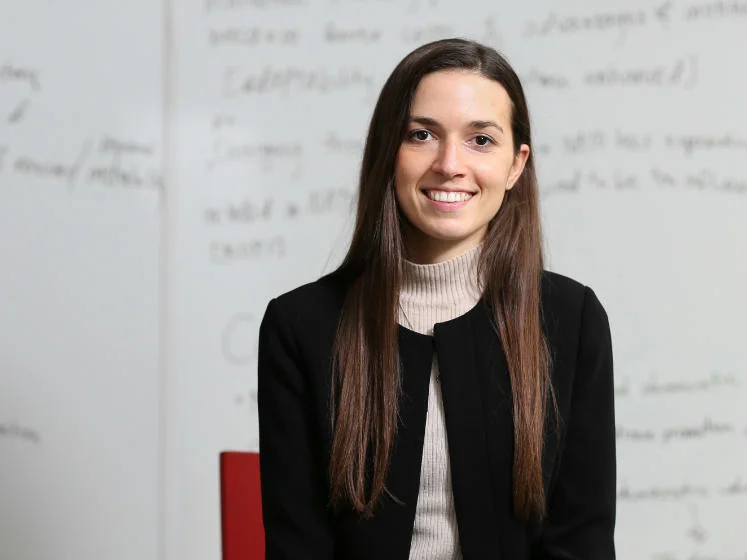Q&A with Martina Manara
Investigating property rights in Tanzania
Martina is a PhD candidate at the Department of Geography and Environment
The academic environment is the perfect place to explore and expand the possibilities of my interdisciplinary, mixed-methods approach to the social sciences.

What are you currently researching?
I am investigating the motivations for individual and community uptake of residential licences, which are an intermediate form of private property rights, in Dar Es Salaam, Tanzania.
In particular, I aim to problematise and understand how social norms and cultural patterns of evaluation, values and beliefs impact on the choices of individuals and communities to formalise their tenure status.
What attracted you to this area of research?
Processes of regularisation or formalisation of informal settlements constitute one of the core challenges of this century. Since my early studies, I have been fascinated by the intellectual and operational challenges that such processes impose.
I think there are some relevant questions to ask, and they fuel my interest. First, what do we know about informal land markets and informal institutions of land use? Could their functioning alone explain individual and community compliance with regularisation programs in terms of costs and benefits of formalisation?
Second, how can we expect people to opt out of their social contract and change their social norms in order to embrace a different set of institutions and social practices? In the fields of urban planning, urban economics and economic geography in general, a deep engagement with questions of social norms, values and beliefs has been somewhat missing in both quantitative and qualitative research. My PhD will help address this lacuna by making these notions operational for empirical studies and policy implementation.
What do you hope to do career-wise, long term?
In the future I would like to work as an academic. The academic environment is the perfect place to explore and expand the possibilities of my interdisciplinary, mixed-methods approach to the social sciences. My first teaching experience has been very positive as the classroom is where everyone brings ideas and shares energy, which can be very stimulating. Right now, I cannot imagine myself anywhere else.
What are your top tips to prospective students on the most effective way to approach research and keep stress levels down?
First, be passionate about your main research question. No matter how great your supervisors and peers are, at the end of the day doing research will require spending a lot of time with yourself. You will need to be able to provide yourself with a good answer when you inevitably ask – "Why am I doing this?" To me the best answer is "Because I love it and because leaving my research question unanswered is not an option".
Second, as my grandmothers used to say, one needs to believe that "where there is will there is power" and "sooner or later all chickens come home to roost". The point is, just work and trust yourself. Your effort will take you somewhere!
What resources are available at LSE to help young researchers?
As a young researcher I found a lot of support from both my Department and the School. Firstly, the PhD Academy offers career advice and training sessions specifically for doctoral students.
Secondly, my Department gave me the opportunity to gain some teaching experience.
Thirdly, I’ve got access to people who are engaged with all sorts of exciting projects, from Professors to PhD students. People are really available and keen to discuss their own research. Both informal meetings and seminars are great opportunities to learn how to communicate and present, discuss and understand other people’s inputs. I find this is essential to produce good research.
What do you enjoy most about studying at LSE?
What I enjoy most about studying at the LSE is being exposed to a research community that wants to make a difference.